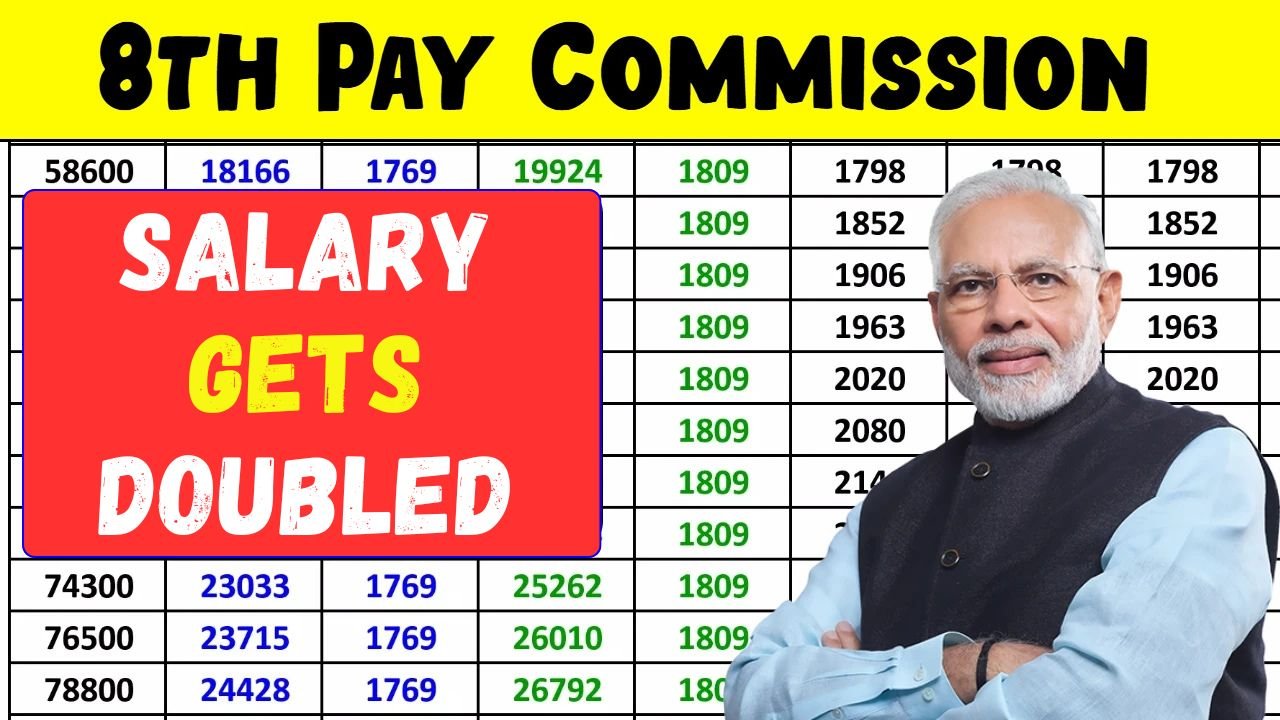To determine the salary structure of employees and pensioners, the central government would formulate a new pay commission every ten years. Presently, applicable to all government employees, the 7th Pay Commission was put into effect in 2016 by the NDA government. Its term will close on December 31, 2025, as preparations are being made for its successor- the 8th Pay Commission-from January 1, 2026.
Announcement of the 8th Pay Commission
For about 50 lakh central government employees and 65 lakh pensioners, the formal announcement of the 8th Pay Commission brings a lot of expectation. This is a pay scam that is going to affect the high-salary plus high-pension category guys in a big way. If any delay in implementation occurs, the government plans to give them arrears counted from January 1, 2026.
Implementation Schedule
As per media reports, the Finance Ministry is set to initiate the process of forming the 8th Pay Commission, likely, by April 2025. However, according to Shiv Gopal Mishra of the Joint Consultative Machinery (JCM), the commission may be formed by February 15, 2026, and the final report would be submitted by November 30, 2026. Supplemented with the final approach to reviewing the report in December 2025, the government’s adoption would be enacted from January 2026.
Expected Salary and Pension Hike
Reports suggest that for the 8th Pay Commission, such fitment factor- a key parameter in salary calculation-range from a low of 2.28 to a maximum of 2.86. This could mean a salary hike of 40-50% to employees. If an employee presently earns basic Rs 20000, it is going to rise to Rs 46600-57200. The lowest basic salary is likely to be fixed at Rs 40, 000.
Minimum pensioners may now be increased to Rs 18720 at the lowest end. Allowances are expected to be revised along with performance bonuses. The minimum basic salary, with a fitment factor set for 2.0, may increase up to Rs 36000, while 2.08 would raise it to Rs 37440, which is around 100-108 percent hike.
Demands of the Employee Union
NC-JCM demands an equal fitment factor across pay bands. The 7th Pay Commission varied that fitment factor of 2.57 applied to Pay Band 1 to 2.81 for the greater pay bands. This is why the union is advocating change for a fairer salary revision across the board.
Conclusion
The much-awaited 8th Pay Commission is destined to usher in salves for central government employees and pensioners. Employees expect the implementation to be extremely beneficial in terms of a common fitment factor alongside huge pay hikes. More details, however, will unfold as the process progresses, regarding precise benefits and timelines.

